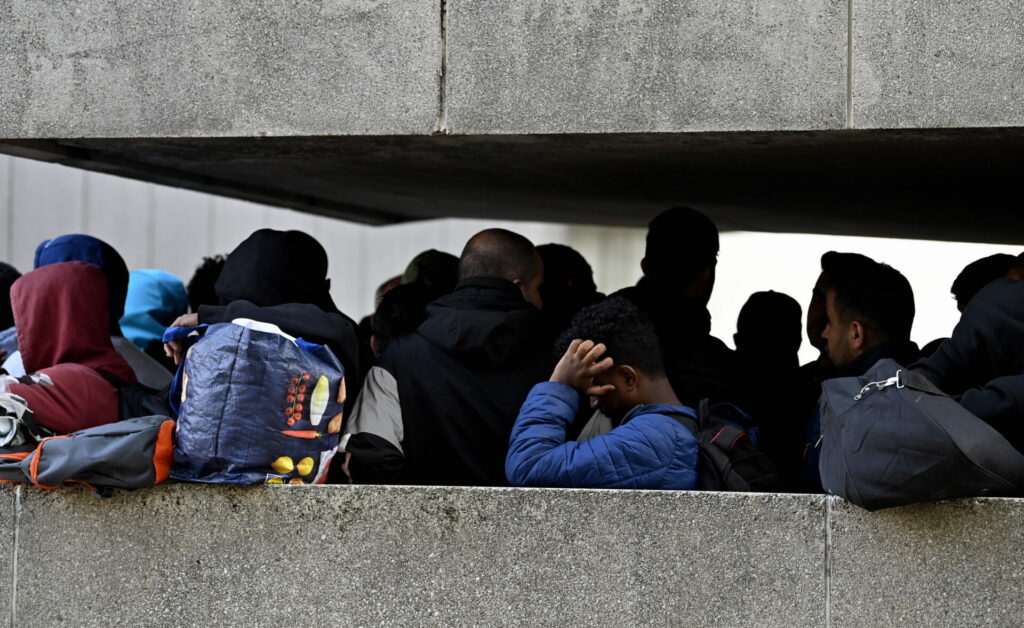Since the 1990s, the EU has worked intensively with third countries to discourage irregular migration and promote the return of irregular migrants. Despite years of efforts, however, these campaigns have been largely ineffective.
The EU and its Member States have made discouraging irregular migration to Europe a priority, as well as enforcing the return of irregular migrants to their countries of origin. But asylum applications in Europe are rising this year.
"My research shows that cooperation in deportations is very unpopular in non-European countries. Many families rely on remittances and often have tied their hopes and financial investments to migration," Omar Cham, VUB researcher, told The Brussels Times. "Policymakers in the EU and its Member States often promise to deport more undocumented migrants, but they ignore the sovereignty of non-EU countries."
An inefficient policy
The EU's policies depend on cooperation with key actors – including politicians in third countries – as well as ordinary citizens, particularly those seen as "potential migrants" to Europe. Cham's research focused on the Gambia (his home country), a small West African nation that is "a key priority country" for the EU and Member States' external migration policies.
"I looked at how the EU cooperates with the Gambia on migration, but more specifically at the topic of deportation and migration information campaigns," he explained. "The findings highlight the inefficiency of this policy."
Cham's research shows that migrant deterrence campaigns have little or no effect and that expulsions of irregular migrants are not as easy to increase as many (right-wing) politicians would have the population believe. Deportations cannot take place without the cooperation of sovereign non-EU countries, which must identify their citizens and grant landing rights to the aeroplanes they return on.

Asylum seekers being taken away from Belgium on a 'special plane' under heavy police escort. Credit: Belga
"The general assumption of the public is that whenever the EU wants to return people to Africa or other places they come from, they just put them in a plane. People seem to think that deportations are easy, but there is a lot more to it," he said. Once a Member State determines that a person is not allowed to stay, they have to make sure that these people are returned to their countries.
For that to happen, the countries of origin must establish that it is a citizen of their country. Travel documents must be issued if they don't have them, and the country of origin must also issue landing permits for the flights chartered by the EU or Member States.
"When Gambians were returned from the EU, this caused public outrage and protest. Even though they are irregular in the EU, they still work and earn income that they use to support their families in the Gambia," Cham said.
'The route is dangerous'
Many families at home depend on remittances sent from Europe to survive. Almost every household – either directly or indirectly – depends on remittances. "That is how important migration is, not just for those who make the journey."
"Return rates have been around 30% for years," Cham said. He says that the promises of rightwing and far-right politicians to rapidly and significantly increase these numbers are "highly unrealistic".
On the other hand, the EU focuses on deterrence campaigns – information campaigns funded by the EU or Member States in non-EU countries to dissuade potential migrants from coming to Europe. "We looked at whether these messages have any impact on the migration decision-making process."

Credit: Belga / Eric Lalmand
The EU aims to communicate three basic messages with these campaigns. The first is "the [irregular] route is dangerous, do not come." Cham found that although Gambians are well aware of the dangers, they choose to make the journey regardless.
"Most Gambians know at least one person who died in making the journey [to Europe]. The information campaigns do not change anything."
The second message emphasises that Europe has its own issues and is not an easy life. "But a difficult life in Europe is still better than their lives in the Gambia," most believe.
Lastly, the EU highlights opportunities in the Gambia, removing the need to come to Europe. "The counter-argument, however, is that there is a problem of access. Additionally, some of those opportunities do not fundamentally change anything in their lives."
Win-win?
"This research highlights that the EU, but also policy-makers in Member States such as Belgium, should reconsider their approach and focus more on the causes of migration rather than just on deterrence and deportation," Cham said.
He stressed the need to recognise that migration is not necessarily a bad thing. "This framing is really pervasive in the European discourse. That needs to change. The EU must take a much more positive view about migration, which will be reflected in their discourses and their policies."
"When people come here, it is not as if they work and earn money and just go away. They pay taxes. In the end, it's a win-win for everyone."

